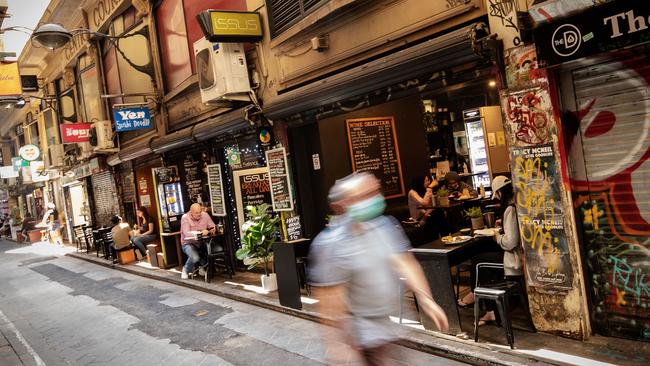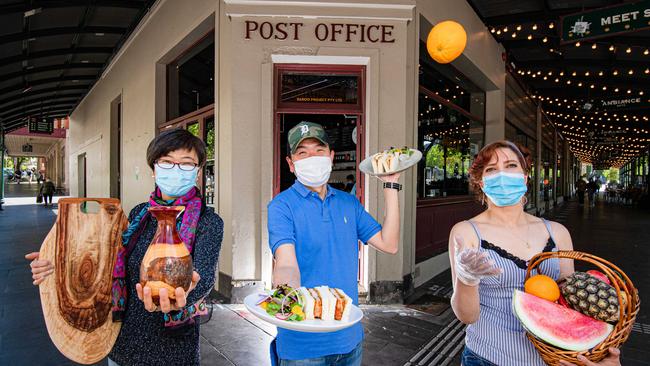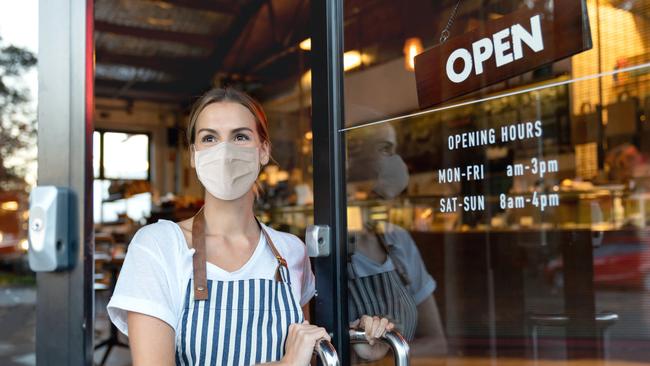Catherine Bennett: Now that Melbourne’s COVID-19 lockdown has ended, what’s next?
For the second time, Victoria is enjoying double zero days, twice in a row. We learned the hard way, but now know what to do to keep the virus at bay, writes epidemiologist Catherine Bennett.

Opinion
Don't miss out on the headlines from Opinion. Followed categories will be added to My News.
We have watched the daily numbers for months now, worrying as they grew, hopeful when they flattened, and relieved when they came down.
But then we entered the long tail of the second wave, nervous about the unseen virus that might be out there, unsure of our public health response and its ability to cope without lockdown, and uncertain about how low our case numbers actually needed to be before we could start to open up.
Now we are there, and for the second time are enjoying double zero days twice in a row after Saturday’s sole case was deemed to be an old case.
We are changing our way of thinking from outbreak response and containment to a focus on making sure we never have to experience a resurgence.
Even as we open up, we might yet drive this virus out of Victoria completely (as we did after the first wave, albeit briefly).
Whether we do or not, we must remain prepared and keep the transmission potential low if the virus does land in our community, ensuring it does not have the chance to take off, overwhelm our systems and cause a third wave.
Let’s look at our numbers. Who would have thought a day of four cases would seem disappointing in Melbourne!
Fortunately most cases now are linked to known clusters and the people are in quarantine, or they may be false positives.
Importantly, the cases that can’t be linked to other known cases have dropped to just one this past fortnight.
This is reassuring as it is now unlikely we are missing chains of transmission that could seed future outbreaks.
The more zero days we have, the more sure we can be.
Even so, it remains critical we each do our bit. That’s how we stay safe and stay in control.
Getting tested if we have symptoms or have been at a location identified as an exposure site is one key control measure.

Even if we isolate while waiting to get tested, there are risks the longer you leave it – if you have the virus, then other people who could have caught it from you will be becoming infectious and spreading the virus themselves.
Early testing also means fewer people in your circle of family, friends and workmates will be inconvenienced by being contacts in the case investigation and, importantly, at lower risk of infection.
What else can we do to prevent another wave?
Our main focus now is on suppressing the risk of transmission should the virus return to our communities. The less close contacts everyone has, the more hygiene and distancing practised and masks worn, the less likely it is that the virus can spread.
Breaking potential chains of transmission stops the virus in its tracks, and protects us all from superspreader events where this coronavirus thrives. With rapid testing and limited close contacts to find and manage, the health department can shut down local outbreaks very quickly.
Your home is the place where you should feel safe, and we can keep it safe from the virus too.
Once in the home, the virus spreads rapidly with about 25 per cent of household members likely to be infected. If you are a close contact of a case who shares the same house, you are 10 times more likely than their other close contacts to become infected.
We don’t wear masks at home and we spend extended periods under the same roof in close proximity, so it pays to keep our homes safe.
This means thinking about what we do when we go out that might increase our risk of exposure, and about who we invite into our homes.
Every time you interact indoors with another household, you are mixing with every household they have connected with over the same week. But we can minimise the risk. Keep your home well ventilated, provide hand sanitiser, meet outdoors if you can, make sure seating is spaced, carefully clean the bathroom and other shared places before guests arrive and when they leave, and wear masks when not eating or drinking.
Most importantly, don’t go out, or have people over, if you are feeling unwell. These simple measures help protect your home as we start to socialise, and will remain important as rules are further relaxed.
Masks are a proven way to reduce transmission potential.

We learned from overseas that these could reduce infection risk by 20 per cent, and even more indoors.
We saw a drop in infections rates in Melbourne when mandatory masks were introduced, and this was repeated in Geelong and regional Victoria.
Do masks still matter with very little virus circulating? It is critical we keep the potential for spread suppressed in case the virus reappears. We will soon reach a point where we won’t have to wear masks all the time, but they will still have a place and may still be mandated in closed shared areas, including public transport, and places where you cannot maintain 1.5m distance.
With these simple, now familiar, safety measures, we can enjoy our re-found freedoms safely.
Heading into summer and the holiday season gives us the opportunity to do more outdoors where the air movement, UV and chance to spread out more makes our time with friends and family that bit safer.
Doing our bit means the public health response will be more rapid and effective.
With our case numbers very low, internal borders will soon disappear and state borders will start to open. We will be ready if the virus crosses the border.
We have learned the hard way, but we know what to do to keep the virus at bay.
— Professor Catherine Bennett is Chair in Epidemiology at Deakin University
MORE NEWS
AUSTRALIA’S COVID-19 VACCINE: WHO GETS IT FIRST
